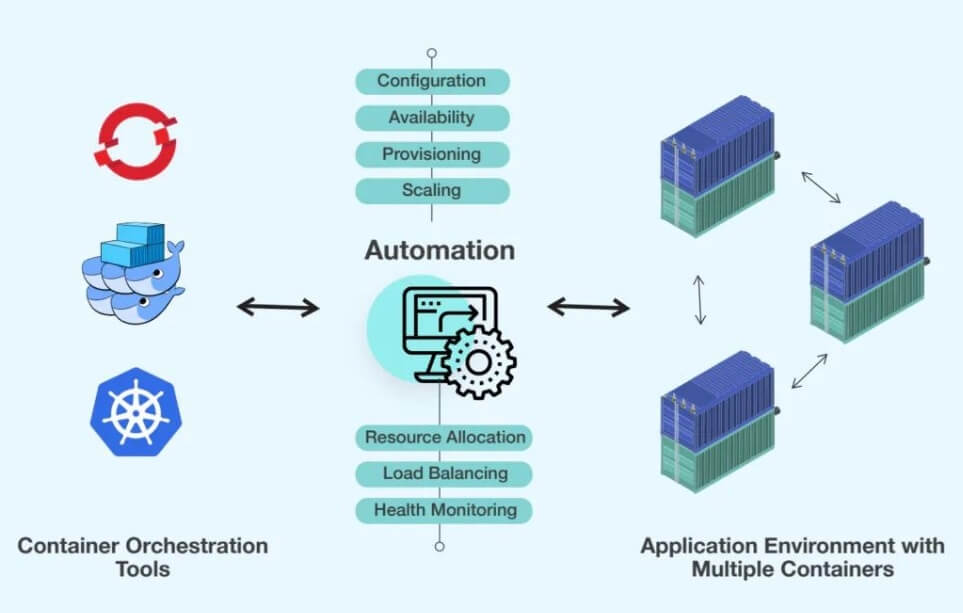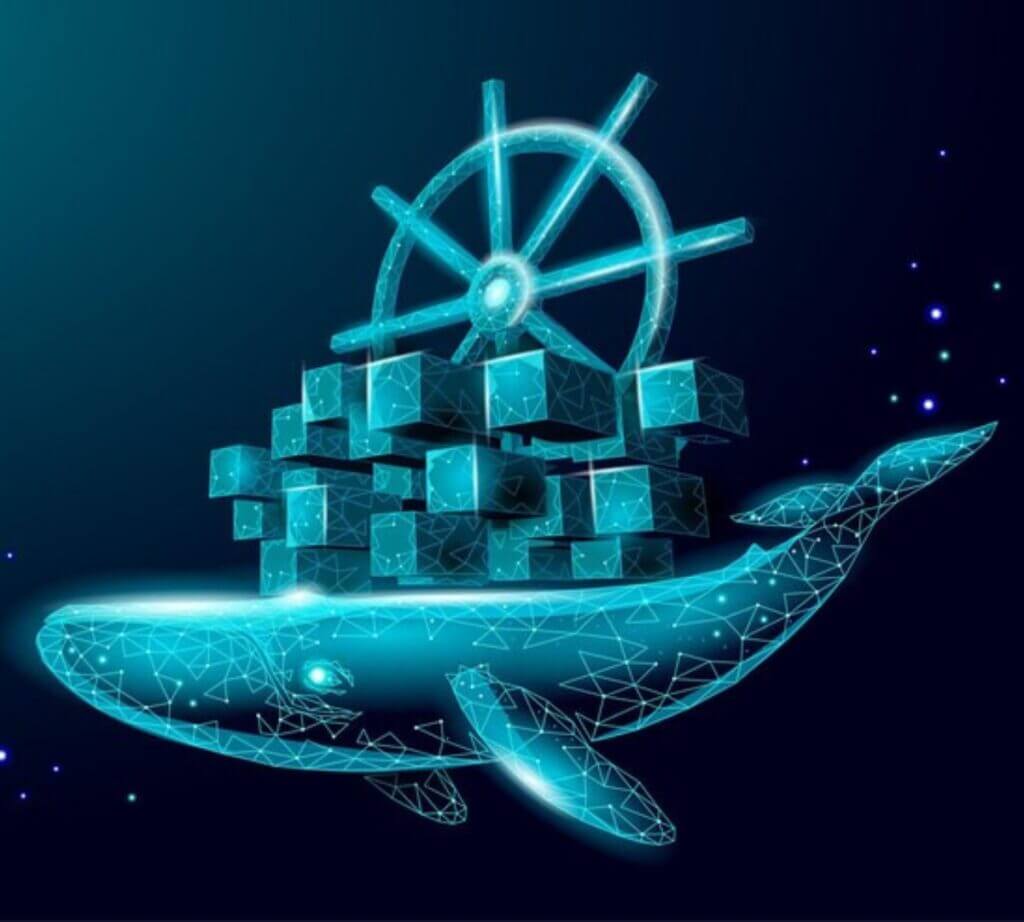How Container Orchestration Simplifies Complex Application Deployments
In the ever-evolving landscape of software development, containerization has emerged as a powerful approach to streamline the development and deployment of applications. Containers offer a lightweight, portable, and consistent environment for applications to run, making it easier to move them across different environments. However, managing containers at scale can be complex and challenging. This is where container orchestration becomes essential. In this blog, we will delve into the world of container orchestration, exploring its importance, key concepts, popular tools, and best practices.
What is Container Orchestration?

Container orchestration is the automatic process of managing and coordinating the deployment, scaling, networking, and lifecycle of containers. It ensures that containers are running optimally, with proper networking, and can scale up or down on demand. Container orchestration addresses the complexity of managing multiple containers in a production environment. By automating these tasks, it significantly reduces the operational overhead and potential for human error. It automates many tasks that would otherwise require manual intervention, such as:
- Deployment: Ensuring that containers are deployed in the correct sequence and on the appropriate nodes.
- Scaling: Automatically scaling the number of container instances up or down based on demand.
- Networking: Managing the communication between containers and ensuring they can discover and interact with each other.
- Health Monitoring: Continuously monitoring the health of containers and restarting or replacing them if they fail.
- Load Balancing: Distributing traffic across multiple container instances to ensure even load distribution and high availability.
Key Concepts in Container Orchestration
Nodes and Clusters
A cluster is a group of nodes that work together as a single system to ensure high availability and scalability. Nodes are the individual servers or virtual machines that run the containers. The orchestration tool manages the cluster and coordinates the tasks across the nodes.
Pods
Pods are the smallest deployable units within a container orchestration system. Each pod may include one or more containers that share the same network settings and storage resources. Pods are typically used to host tightly coupled application components that need to share resources.
Services
Services act as an abstraction that defines a logical grouping of pods and a set of rules for accessing them. They offer a consistent endpoint for clients to connect with, even when the underlying pods are updated or scaled.
ReplicaSets
A ReplicaSet guarantees that a designated number of pod replicas are always running. It continuously monitors pod health and replaces any that fail or are removed.
Deployments
Deployments are higher-level abstractions that manage the lifecycle of applications. They allow you to define desired states, perform rolling updates, and roll back to previous versions if needed.
Some Popular Tools
Kubernetes
Kubernetes, developed by Google, is the leading container orchestration platform and has become the industry standard for managing containerized applications. Kubernetes offers robust features for managing container applications, including automatic scaling, self-healing, and rolling updates.
Docker Swarm
Docker Swarm is Docker’s native orchestration tool. It is tightly integrated with Docker and offers a simpler setup compared to Kubernetes. Docker Swarm provides clustering and scheduling capabilities, making it easy to manage a swarm of Docker engines.

Apache Mesos and Marathon
Apache Mesos is a distributed systems kernel that abstracts CPU, memory, storage, and other resources away from machines, enabling fault-tolerant and elastic distributed systems to be built and run effectively. Marathon is a container orchestration platform built on top of Mesos.
How Container Orchestration Simplifies Application Deployments
Managing applications in today’s fast-paced world can be challenging. Container orchestration makes this easier by automating key tasks. It takes care of deploying, scaling, and networking containers, so developers can focus on their work. Tools like Kubernetes, Docker Swarm, and Apache Mesos help by:
- Automating Deployment: Ensuring containers are deployed efficiently and correctly across nodes.
- Scaling Up and Down: Adjusting the number of container instances based on demand without manual intervention.
- Managing Networking: Facilitating communication between containers and maintaining service discovery.
- Ensuring High Availability: Monitoring container health and replacing failed instances automatically.
With this orchestration method, organizations can manage applications more efficiently and reliably, leading to smoother operations and quicker innovation.
Challenges in Container Orchestration
Complexity
While container orchestration simplifies many aspects of managing containers, it also introduces complexity. Configuring and managing an orchestration platform like Kubernetes requires a deep understanding of its components and features.
Security
Securing containerized applications is crucial and involves several key practices. This includes safeguarding container images, ensuring network security, managing sensitive data (secrets), and implementing role-based access control (RBAC). It is also essential to conduct regular security audits and vulnerability scans to maintain robust security.
Cost Management
Running container orchestration platforms can be resource-intensive, leading to higher operational costs. Optimize resource usage by right-sizing your containers, using auto-scaling, and regularly reviewing resource consumption.
What Lies Ahead for Container Orchestration
The rise of serverless computing and FaaS is influencing the future of container orchestration. Serverless platforms abstract away the underlying infrastructure, allowing developers to focus solely on writing code. Kubernetes is evolving to support serverless workloads, making it a versatile platform for various use cases.
AI and machine learning are being integrated into container orchestration platforms to enhance automation and efficiency. AI can be used for predictive scaling, anomaly detection, and optimizing resource allocation.
The future of container orchestration is moving towards hybrid and multi-cloud deployments. Organizations are adopting strategies to deploy and manage containers across multiple cloud providers and on-premises environments, ensuring flexibility and avoiding vendor lock-in.
Final Thoughts
Container orchestration revolutionizes the way we manage and deploy applications. It provides a robust framework for automating the complex tasks link with running containers at scale. With tools like Kubernetes, Docker Swarm, and Apache Mesos, organizations can achieve high availability, scalability, and efficient resource utilization. By following best practices and staying abreast of emerging trends, businesses can harness the full potential of container orchestration to drive innovation and deliver reliable, high-performing applications.
Do you want to simplify your Application Deployments and boost your Operational Efficiency?
Contact us right away.
